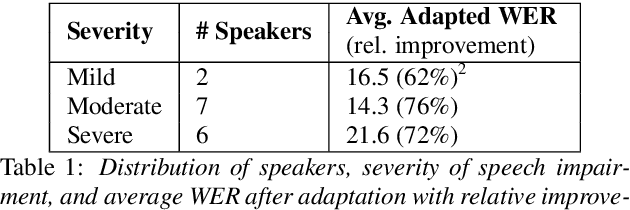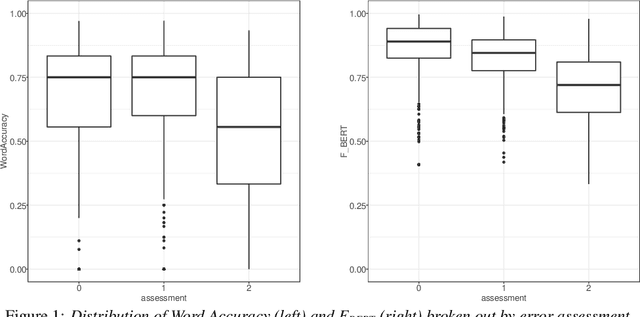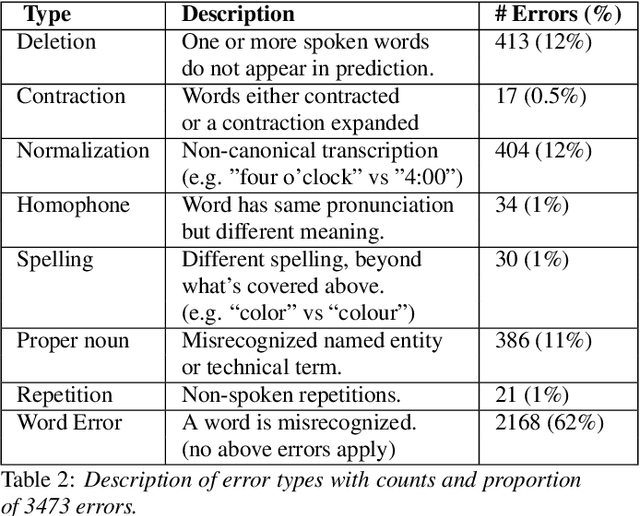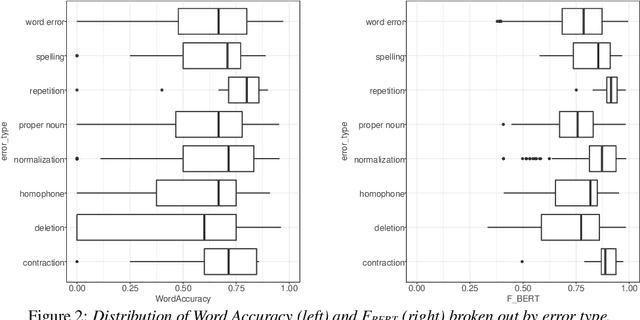Qisheng Li
AS-70: A Mandarin stuttered speech dataset for automatic speech recognition and stuttering event detection
Jun 11, 2024


Abstract:The rapid advancements in speech technologies over the past two decades have led to human-level performance in tasks like automatic speech recognition (ASR) for fluent speech. However, the efficacy of these models diminishes when applied to atypical speech, such as stuttering. This paper introduces AS-70, the first publicly available Mandarin stuttered speech dataset, which stands out as the largest dataset in its category. Encompassing conversational and voice command reading speech, AS-70 includes verbatim manual transcription, rendering it suitable for various speech-related tasks. Furthermore, baseline systems are established, and experimental results are presented for ASR and stuttering event detection (SED) tasks. By incorporating this dataset into the model fine-tuning, significant improvements in the state-of-the-art ASR models, e.g., Whisper and Hubert, are observed, enhancing their inclusivity in addressing stuttered speech.
Assessing ASR Model Quality on Disordered Speech using BERTScore
Sep 21, 2022



Abstract:Word Error Rate (WER) is the primary metric used to assess automatic speech recognition (ASR) model quality. It has been shown that ASR models tend to have much higher WER on speakers with speech impairments than typical English speakers. It is hard to determine if models can be be useful at such high error rates. This study investigates the use of BERTScore, an evaluation metric for text generation, to provide a more informative measure of ASR model quality and usefulness. Both BERTScore and WER were compared to prediction errors manually annotated by Speech Language Pathologists for error type and assessment. BERTScore was found to be more correlated with human assessment of error type and assessment. BERTScore was specifically more robust to orthographic changes (contraction and normalization errors) where meaning was preserved. Furthermore, BERTScore was a better fit of error assessment than WER, as measured using an ordinal logistic regression and the Akaike's Information Criterion (AIC). Overall, our findings suggest that BERTScore can complement WER when assessing ASR model performance from a practical perspective, especially for accessibility applications where models are useful even at lower accuracy than for typical speech.
The Effect of Moderation on Online Mental Health Conversations
Jun 10, 2020



Abstract:Many people struggling with mental health issues are unable to access adequate care due to high costs and a shortage of mental health professionals, leading to a global mental health crisis. Online mental health communities can help mitigate this crisis by offering a scalable, easily accessible alternative to in-person sessions with therapists or support groups. However, people seeking emotional or psychological support online may be especially vulnerable to the kinds of antisocial behavior that sometimes occur in online discussions. Moderation can improve online discourse quality, but we lack an understanding of its effects on online mental health conversations. In this work, we leveraged a natural experiment, occurring across 200,000 messages from 7,000 conversations hosted on a mental health mobile application, to evaluate the effects of moderation on online mental health discussions. We found that participation in group mental health discussions led to improvements in psychological perspective, and that these improvements were larger in moderated conversations. The presence of a moderator increased user engagement, encouraged users to discuss negative emotions more candidly, and dramatically reduced bad behavior among chat participants. Moderation also encouraged stronger linguistic coordination, which is indicative of trust building. In addition, moderators who remained active in conversations were especially successful in keeping conversations on topic. Our findings suggest that moderation can serve as a valuable tool to improve the efficacy and safety of online mental health conversations. Based on these findings, we discuss implications and trade-offs involved in designing effective online spaces for mental health support.
 Add to Chrome
Add to Chrome Add to Firefox
Add to Firefox Add to Edge
Add to Edge